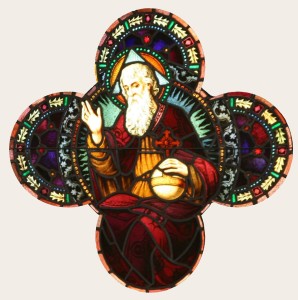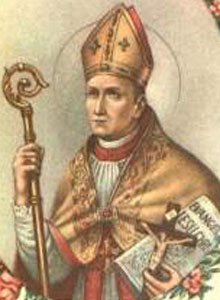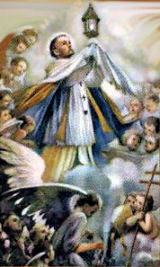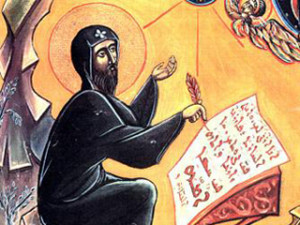
Saint Ephrem (306-373)
(Franciscan Media) Born in Syria Mesopotamia, Ephrem was a young man when he was baptized and became a famous Teacher, Poet, Orator and defender of Christianity–Ephrem is the only Syrian recognized as a Doctor of the Church.
Ephrem took it upon himself the special task of opposing the many false doctrines that were rampant in his time, always remaining a true and forceful defender of the Catholic Church.
One of Ephem’s biographers relates a story according to EWTN that on a certain occasion he cursed from the city walls the Persian hosts, whereupon a cloud of flies and mosquitoes settled on the Army of Sapor II King of Persia and compelled it to withdraw. The adventurous campaign of Julian the Apostate, which for a time menaced Persia ended, as is well known in disaster and his successor Jovianus, was only to happy to rescue from annihilation some remnant of the great army which his predecessor had led across the Euphrates.
Ephrem was Ordained as a Deacon (declining to become a Priest) in Edessa and also became quite well known for his sermons according to Catholic News Agency which combined articulate expressions of Catholic orthodoxy with urgent and fruitful calls for repentance.
A voluminous writer and author, Ephrem produced commentaries on the entire Bible as well as theological poetry for which he is best remembered. — Ephrem used the Syriac language verse as a means to explain and popularize theological truths, a technique that he appropriated from others who had used poetry to promote religious error.
Ephrem’s works reflected deep insight and knowledge of the scriptures. In writing about the mysteries of humanity’s redemption, Ephrem reveals a realistic and humanly sympathetic spirit, together with a great devotion to the divine nature of Jesus.
It is inspiring to read the hymns that Ephrem wrote against the heretics of his day, he would take the popular songs of the idolatrous and heretical groups and using their own melodies, composing beautiful hymns emboding orthodox doctrine.
Ephrem became one of the first to introduce music into the Church public worship as a means of instruction for the faithful. — His many hymns earned him the title: Harp of the Holy Spirit.
Near the end of his life according to Catholic News Agency Ephrem briefly served the poor and the sick during a famine which may have attributed to his own death. When Ephrem’s last day had come to his life, he told his friends:
“Sing no funeral hymns at Ephrem’s burial…Wrap not my carcass in any costly shroud. Erect no monument to my memory. Allow me only the portion and place of a Pilgrim, for I am a Pilgrim and a stranger as all my fathers were on earth.”
Ephrem passed away on this date in Edessa (modern day Iraq) — Soon after his death, Ephrem was remembered in a public address by his contemporary Saint Gregory of Nyssa (Feast Day: 10 January) who closed his remarks by asking Ephrem’s intercession:
“You are now assisting at the divine alter and before the Prince of Life with the Angels, praising the most Holy Trinity. Remember us all and obtain for us the pardon of our sins.”
More here from Butler’s Live of the Saints
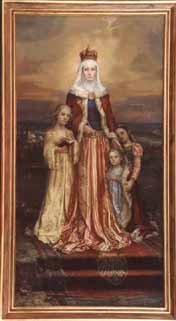
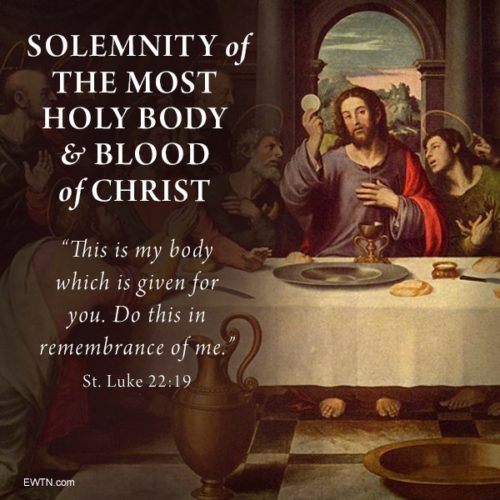 Jesus proclaimed, “I am the Bread of Life…
Jesus proclaimed, “I am the Bread of Life…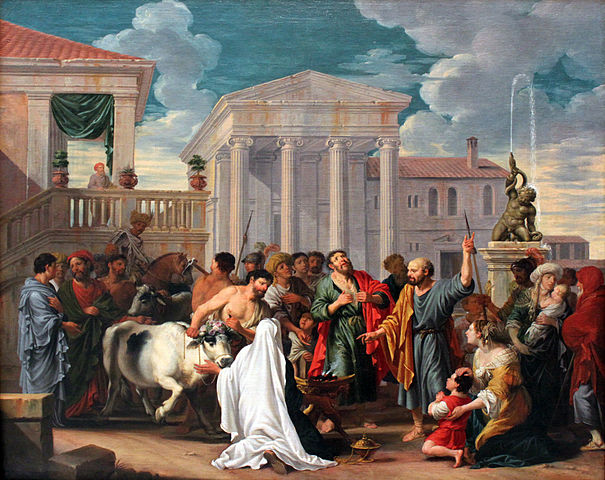 Saint Barnabas and Apostle Paul in Lystra –Image Courtesy:
Saint Barnabas and Apostle Paul in Lystra –Image Courtesy: 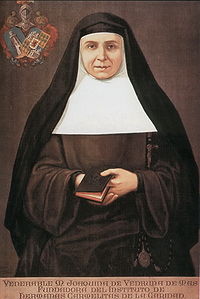 Saint Joachima (1783-1854)
Saint Joachima (1783-1854)
